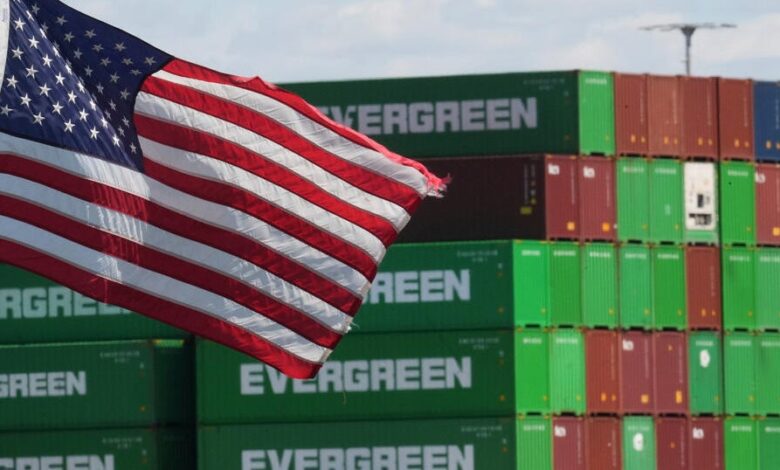Stocks slide after U.S. says it will impose a 104% tariff on China starting tonight

Stocks shed their gains in the afternoon after an earlier rebound on Tuesday, with the Dow Jones Industrial Average falling 0.8% after the Trump administration said it will impose a 104% tariff on China beginning at 12:01 a.m. EST Wednesday.
Tuesday’s losses add to the three-day sell-off that has wiped out trillions in market value amid anxieties about the economic impact of President Trump’s wide-ranging reciprocal tariffs.
The Dow Jones Industrial Average sank 320 points, or 0.84%, to close at 37,645.59. The S&P 500 dropped 1.6%, while the tech-heavy Nasdaq Composite index tumbled 2.2%.
What caused the selloff
The sell-off began on April 3, the day after Mr. Trump unveiled tariffs on imports from almost every nation, on top of a number of previously announced import duties targeting the auto, steel and aluminum industries, among others. Wall Street economists say the tariffs are likely to drive up inflation because they’ll largely be passed onto consumers in the form of higher prices, which could stall U.S. economic growth and increase the risk of a recession.
But stocks rebounded early Tuesday, with some investors holding out hope that the tariffs could be pared back, with that optimism bolstered on Tuesday morning by Treasury Secretary Scott Bessent, who told CNBC that the Trump administration is negotiating tariffs with a number of countries.
“I think we can end up with some good deals,” Bessent said. “And I actually think, as I said that over the weekend, President Trump has maximum negotiating leverage right here, right now, and I think it would be a mistake for anyone to think otherwise.”
Yet that optimism gave way to afternoon losses after White House spokeswoman Karoline Leavitt said the White House will begin collecting steep levies on imported goods from China starting on Wednesday.
CBS News 24/7 is answering your questions about tariffs in a special airing on Wednesday at 6 p.m. ET. Download the CBS News app on your phone or connected TV to watch it live.
The 104% tariff rate is the result of an escalation in Mr. Trump’s trade war, with the president on Monday threatening to slap an additional 50% tariff on imports from China after the nation said it would impose a 34% import fee on American products.
China’s retaliatory move came after Mr. Trump said China would face a 34% tariff on all goods imported to the U.S., a rate tailored specifically to China.
“The tariff overhang isn’t going away, even if some of the reciprocal numbers from the April 2 chart wind up getting trimmed a bit, and the huge disruptions to global trade will have a substantially negative effect on growth (especially since they hit at a time when the economy was already slowing), while pushing inflation higher,” said Adam Crisafulli of Vital Knowledge in a research note.
Buying the dip
The rebound earlier in the day was partly due to investors seeking to buy stocks after they’d been knocked down, seizing the opportunity to buy shares at lower costs, some analysts noted. But the tariffs still remain in place, threatening the long-term growth of U.S. businesses, they added.
Corporate earnings season kicks off this week with Delta Air Lines reporting on Wednesday and major U.S. banks offering up their latest results on Friday. The airline sector, which had been forecasting a strong 2025, has been one of the hardest hit during Trump’s tariff rollout.
Banks report their latest quarterly earnings on Friday, but most of the attention likely will be on their forecasts amid the rising global trade tensions ignited by Trump’s tariffs.
On Thursday, the government posts its latest inflation data, which could play into the Federal Reserve’s next interest rate decision. Many economists have raised their odds of a U.S. recession because of the tariffs and suggest the Fed may have to step in and cut rates to help spur economic growth.
contributed to this report.




